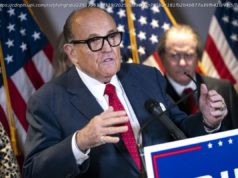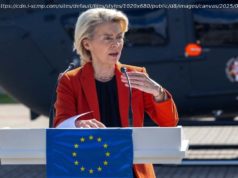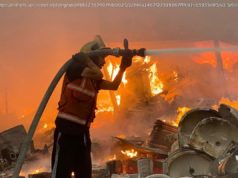As US sanctions kick in against the Islamic Republic, Iranians suffer and the world becomes a more perilous place.
Three months after the US first announced it was withdrawing from the Iran nuclear deal, the Trump administration announced new sanctions on the Islamic Republic on 7 August. Trump has dismissed the 2015 nuclear deal, a joint agreement between Iran, Europe, the US, Russia and China that lifted international sanctions in exchange for curbs to Iran’s nuclear programme, as “disastrous”.
He is hoping that this new round of sanctions will pressure the Iranian leadership to withdraw its military involvement in the conflicts currently raging in the Middle East. It’s a dangerous gamble.
The sanctions imposed this month cover Iran’s holding of US dollars, gold, aluminium, steel and other metals, and the car industry. A second round of sanctions due to kick in this November will affect Iran’s oil and shipping sectors and will prevent foreign financial institutions from trading with the Iranian Central Bank.
The other parties to the Iran nuclear deal are keen to keep the agreement alive, but Donald Trump has said that the US will not trade with companies that do business with Iran and several automobile, plane and oil and gas companies have already suspended their Iranian business plans.
So far, the only certain and immediate impact of these sanctions is that life will become harder for ordinary Iranians. Even before sanctions were imposed, the Iranian economy has been struggling. The value of the rial has fallen by 80 per cent in the past year; inflation and unemployment are high. Since December there have been sporadic anti-government protests across the country over high food prices and joblessness, including a demonstration in Tehran in June that was the largest to hit the capital since 2012.
The New York Times reports that Iranians have been buying gold ahead of the sanctions and are worried about how they will get by. According to the Guardian, Iran is already running out of some medicines, and drugs and many medical treatments are becoming prohibitively expensive because of the fall in the value of the rial. “It’s a matter of life and death,” one Iranian doctor told the newspaper.
The lifting of sanctions three years ago also gave Iran an opportunity to renew its dangerous and ageing air fleet. This too, was a matter of life and death for Iranians: 2,000 people have died in domestic plane crashes in the past two decades. But Boeing and Airbus in May terminated multi-billion dollar deals to provide aircraft to Iran.
Despite the simmering discontent in Iran, the US sanctions could in fact strengthen the Iranian government domestically. In the Wall Street Journal Barbara Slavin, the director of the Future of Iran Initiative at the Atlantic Council, argued that sanctions rarely lead to regime change because they cause poor people to become more dependent on government assistance.
In the longer term, the sanctions seem likely to strengthen Iran’s hard-liners at the expense of moderates such as President Hassan Rouhani, who pushed for the nuclear deal. But for now, Rouhani’s condemnation of Trump’s decision seems to be playing well at home. In a speech on state television just before the sanctions were imposed, Rouhani told the country that he would not negotiate with the US without first securing concessions.
“If you stab someone with a knife and then say you want talks, then the first thing you have to do is remove the knife,” he said in the speech, Reuters reported . “We are always in favour of diplomacy and talks… but talks need honesty.”
According to the Associated Press, the hard-line Keyhan newspaper, which is frequently critical of Rouhani and other architects of the nuclear deal, featured a portrait of the Iranian president on its front page with the headline, “the way we can surpass all sanctions is to have unity.”
If the Trump administration’s real goal in imposing sanctions is regime change, it seems unlikely to succeed. It seems unlikely, too, that having torn-up a landmark nuclear deal that resulted from two years of diplomatic negotiations, Trump and his under-staffed State Department will be able to construct a better one. The president’s track record suggests he is much more skilled at breaking deals than making them – and now he has broken Iran’s trust and angered America’s allies.
By heightening the chance that Iran will restart its nuclear programme, Donald Trump has made the world a more dangerous place. But first, the people of Iran will suffer.






